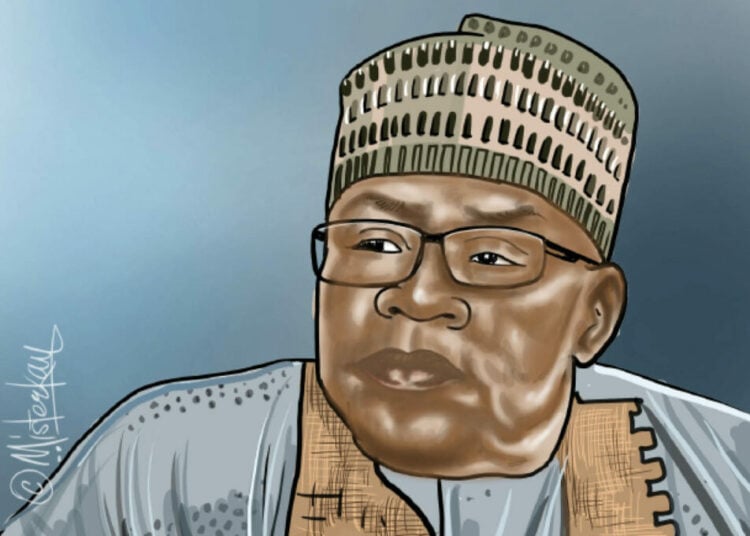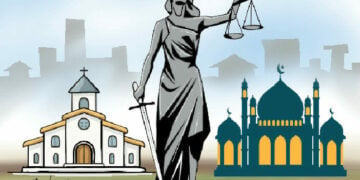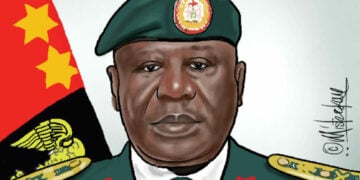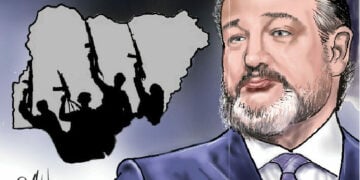Though no comet was seen when he was born on 17th August 1941, the child who was to be called Ibrahim was destined for greatness, as his natural leadership qualities, manifested in his early years as a student of Government College Bida, proved an irrefutable prognosis of what he was to become. Unlike some leaders who are completely self-driven, the boy who would be known by his fellow citizens as General Ibrahim Badamasi Babangida (retd) is a personification of leadership borne of service, loyalty, and trust.
In Defence Of Country
Like many of his peers who burned with a fiery zeal to join the military, he attended what is now called the Nigerian Defence Academy (NDA), Kaduna. In the dark moments of Nigeria’s civil war, which ended with the ‘No Victor, No Vanquished’ chorus in January 1970, the footprints of General Babangida, who still carries bullet pellets in his body, remind many of the supreme sacrifices paid by many to ensure the country’s unity during the civil war.
After the civil war, which was caused by the failed coup of January 1966, led by Major Chukwuma Kaduna Nzeogwu and his colleagues, the attendant political conflagration turned the newly independent nation into a war theatre. Fellow military officers who were once in training trenches were turned into vicious foes. For many who survived the tragic event, the footprints of those dark years are better consigned to fleeting memory.
Like the soldier he was, IBB fought not just for what he saw in the present but in defence of what was to come out of a nation that holds and still holds tremendous prospects not only for Africa but also for the Black race.
At The Top
As a military man whose love for consensus-building is unprecedented, throughout his eight-year presidency, he adopted the title of ‘President’ to drive collective participation in managing the country’s affairs. Popularly called IBB by admirers, the power of the infectious spirit he carried through his military career brought envy and admiration. He not only proved to be a cat with nine lives, he outlived most of his enemies who wished him dead.
As someone reputed to have participated in coups, beginning with the Revenge Coup of July 1966, this coupist of tremendous warmth never had his guardian angel slumber during the storm of bullets unleashed on Dodan Barracks by the coupists of 22nd April 1990, led by Major Gideon Orkar. As President, General Babangida turned Nigeria into a vast construction site and a platform for new ideological leanings.
After the Political Bureau, headed by Dr. Samuel Joseph Cookey, a new political orientation became the primary focus of the regime, which led to the introduction of a two-party system: the National Republican Convention (NRC) and the Social Democratic Party (SDP). Under his administration, Nigerians were challenged to “rise and surrender their today so that the future of their children can be brighter.” The wisdom of the two-party system is shown in the current efforts to navigate the challenges of the multiple-party system, which has led to crippling corruption and commercialization of the political process.
He worked hard through politics and the creation of intervening institutions to dislocate forces of underdevelopment, including drawing the curtains over ethnic domination through state creation. He was good at predicting the outcome of political events and proved unlike others before and after him. He was at home with survival strategies and ready not to run against the tide.
When, ahead of the 2007 presidential poll, he declared his interest in a comeback to the corridors of power, he withdrew his interest when the younger brother of his fellow military officer, Major-General Shehu Musa Yar’Adua (retd), then Governor of Katsina State, Umaru Musa Yar’Adua, declared for the presidency at the behest of former President Olusegun Obasanjo.
Still the Leader
One of Nigeria’s most decorated military officers, former Chief of Defence Staff and Chief of Army Staff, General Martin Luther Agwai (retd), once told me that General Babangida came to power fully prepared. As an ardent believer in the principle of shared power, he proved knowledgeable in dealing with the dialectics of power in contending with military insurrection. I was always awed by the personal attributes of this former military leader, but I have found myself unable to understand the rationality of the IBB-led regime.
Once accused by Christians of plunging Nigeria into membership of the Organisation of Islamic Cooperation (OIC), the anti-OIC bandwagon deliberately forgot that, at the same time, the same military regime restored diplomatic relations with the Zionist State of Israel. Abuja would not have been what it is today if not for General IBB. He can be aptly credited as being ‘The Father of Nigeria’s Modern Capital City’.
Snippets of a memoir written by one of the founders of ‘Newswatch’ magazine, Mallam Yakubu Mohammed, have exculpated the IBB-led regime of any form of complicity in the murder of the magazine’s editor-in-chief, Dele Giwa. Foraging through General Babangida’s rumbling footprints in the corridors of power could be an energy-sapping expedition. Always engaged in exercising faith in a nation that has denied him flowers for his strides, those who love or hate him must go to Minna to confer with this Power Oracle. He remains a constant factor in Nigeria’s leadership equation.
The shortcomings of the IBB regime may still reverberate in dissenting tunes, but his altruistic motives for national unity and development remain undisputed. Despite disputatious testimonies about his place in the nation’s history, General Babangida’s tracks remain undiminished. General IBB, happy belated 84th birthday celebrations. Continue to enjoy good health for the service of the Fatherland in the years to come!





